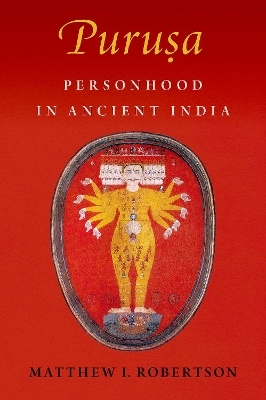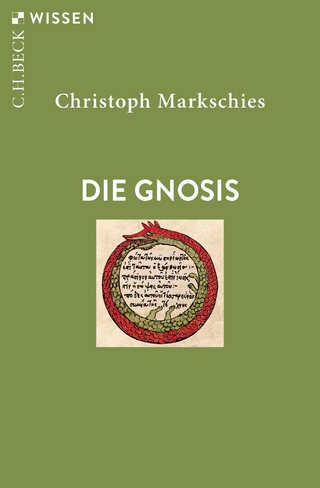
Puruṣa
Personhood in Ancient India
Seiten
2024
Oxford University Press Inc (Verlag)
978-0-19-769360-5 (ISBN)
Oxford University Press Inc (Verlag)
978-0-19-769360-5 (ISBN)
Personhood is central to the worldview of ancient India. Across voluminous texts and diverse traditions, the subject of the puruṣa, the Sanskrit term for "person," has been a constant source of insight and innovation. Yet little sustained scholarly attention has been paid to the precise meanings of the puruṣa concept or its historical transformations within and across traditions. In Puruṣa: Personhood in Ancient India, Matthew I. Robertson traces the history of Indic thinking about puruṣas through an extensive analysis of the major texts and traditions of ancient India.
Through clear explanations of classic Sanskrit texts and the idioms of Indian traditions, Robertson discerns the emergence and development of a sustained, paradigmatic understanding that persons are deeply confluent with the world. Personhood is worldhood. Puruṣa argues for the significance of this "worldly" thinking about personhood to Indian traditions and identifies a host of techniques that were developed to "extend" and "expand" persons to ever-greater scopes. Ritualized swellings of sovereigns to match the extent of their realm find complement in ascetic meditations on the intersubjective nature of perceptually delimited person-worlds, which in turn find complement in yogas of sensory restraint, the dietary regimens of Ayurvedic medicine, and the devotional theologies by which persons "share" and "eat" the expansive divinity of God. Whether in the guise of a king, an ascetic, a yogi, a buddha, or a patient in the care of an Ayurvedic physician, fully realized persons know themselves to be coterminous with the horizons of their world.
Offering new readings of classic works and addressing the fields of religion, politics, philosophy, medicine, and literature, Puruṣa: Personhood in Ancient India challenges us to reexamine the goals of ancient Indian religions and yields new insights into the interrelated natures of persons and the worlds in which they live.
Through clear explanations of classic Sanskrit texts and the idioms of Indian traditions, Robertson discerns the emergence and development of a sustained, paradigmatic understanding that persons are deeply confluent with the world. Personhood is worldhood. Puruṣa argues for the significance of this "worldly" thinking about personhood to Indian traditions and identifies a host of techniques that were developed to "extend" and "expand" persons to ever-greater scopes. Ritualized swellings of sovereigns to match the extent of their realm find complement in ascetic meditations on the intersubjective nature of perceptually delimited person-worlds, which in turn find complement in yogas of sensory restraint, the dietary regimens of Ayurvedic medicine, and the devotional theologies by which persons "share" and "eat" the expansive divinity of God. Whether in the guise of a king, an ascetic, a yogi, a buddha, or a patient in the care of an Ayurvedic physician, fully realized persons know themselves to be coterminous with the horizons of their world.
Offering new readings of classic works and addressing the fields of religion, politics, philosophy, medicine, and literature, Puruṣa: Personhood in Ancient India challenges us to reexamine the goals of ancient Indian religions and yields new insights into the interrelated natures of persons and the worlds in which they live.
Matthew I. Robertson is a lecturer in the Department of History at Murray State University and holds a PhD in Religious Studies from the University of California, Santa Barbara.
Abbreviations
1. Persons, Worlds
2. The Expansion of Sovereign Personhood in the Rgveda
3. Measures and Mortals: The post-Rgveda Puru.sa
4. The Blissful Recursion of Personhood in the Upanisads
5. The Elementality of Personhood in Early Buddhism
6. Equal to the World: Paradigmatic Personhood in Early Ayurveda
7. Persons in a Bewildered World: Paradigmatic Personhood in the Mahabharata
8. Persons, Worlds: Resumed
Index
| Erscheinungsdatum | 20.01.2024 |
|---|---|
| Verlagsort | New York |
| Sprache | englisch |
| Maße | 226 x 163 mm |
| Gewicht | 544 g |
| Themenwelt | Geisteswissenschaften ► Geschichte ► Regional- / Ländergeschichte |
| Geschichte ► Teilgebiete der Geschichte ► Religionsgeschichte | |
| Geisteswissenschaften ► Philosophie ► Östliche Philosophie | |
| Geisteswissenschaften ► Religion / Theologie | |
| ISBN-10 | 0-19-769360-1 / 0197693601 |
| ISBN-13 | 978-0-19-769360-5 / 9780197693605 |
| Zustand | Neuware |
| Informationen gemäß Produktsicherheitsverordnung (GPSR) | |
| Haben Sie eine Frage zum Produkt? |
Mehr entdecken
aus dem Bereich
aus dem Bereich
Von den Anfängen bis zur Gegenwart
Buch | Hardcover (2022)
C.H.Beck (Verlag)
34,00 €
warum die Religionen erst im Mittelalter entstanden sind
Buch | Hardcover (2024)
C.H.Beck (Verlag)
38,00 €


